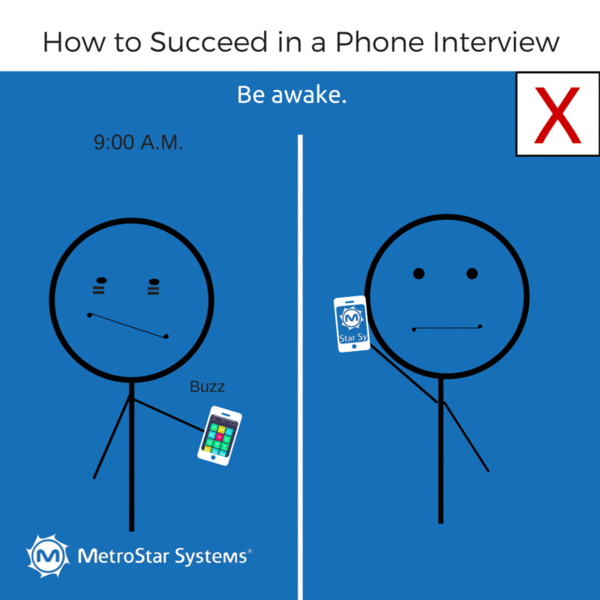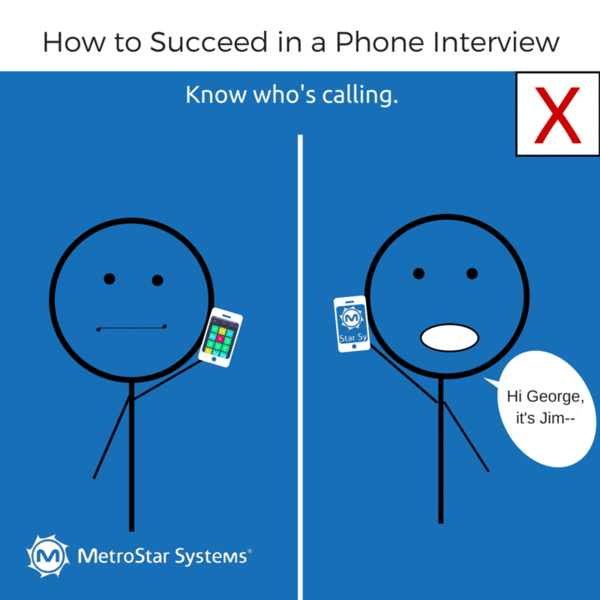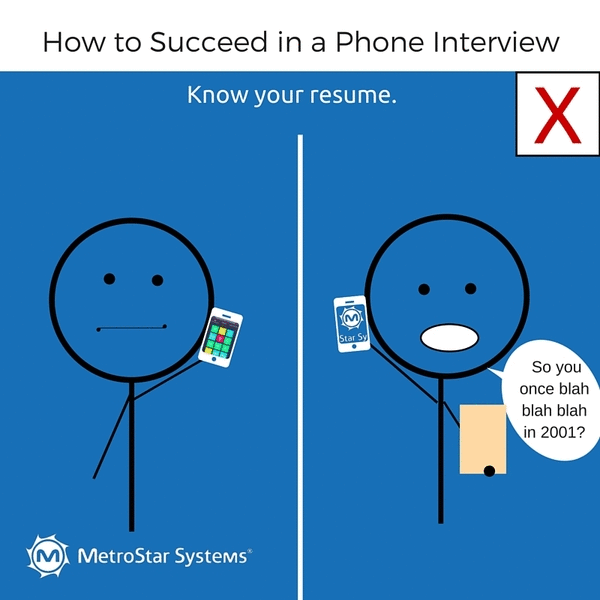11 Tips for Succeeding in a Phone Interview
3 MIN READ
02/18/2016 | Career Growth

1. Be awake. If your phone interview is scheduled for the morning, don’t treat your interviewer’s call as a wake-up call. Get out of bed at least an hour before your interview and take some time to freshen up, eat breakfast, review your notes, and drink water to fight that crackly morning voice.

2. Dress the part. Before your interview, dress for a normal day, or as though you were going in for an in-person interview. Studies show that we tend to reflect the characteristics associated with the clothes that we’re wearing. Dress for a productive day, and you’ll likely feel more energized during your interview.
3. Find a quiet spot. 5-10 minutes before your scheduled time, find a quiet place with good reception (or a home phone for those that still have them). Consider using headphones, too, to be able to hear your interviewer more clearly — don’t use speaker phone!
4. Know who’s calling. Always make sure that you know the name, title, and role of the person who’s calling you. Are they the hiring manager? Or are they calling for a preliminary screening? Confirm these details with your recruiter before the interview.

5. Know the company. Do your research on the company and the job via the company website, LinkedIn, and other resources. Even if you plan on having your laptop open in front of you during the call, know your stuff so that you’re not fiddling to find the answers on the spot. Chances are, your interviewer will be asking you questions that can’t easily be found online — you would’ve had to have considered these questions while doing your preliminary research.
6. Get reacquainted with your resume. Look over your resumes — both the one your profile on LinkedIn, and the one you sent to your recruiter. Be able to elaborate on every detail of your resume. You never know which of your previous roles, employers, or experiences will spark your interviewer’s interest. Also, make sure to have a printed version of your resume in front of you during the interview.

7. Show your enthusiasm. During your interview, be mindful of the tone and volume of your voice. Adopt a confident, enthusiastic voice that’s neither too soft or too loud. Smile and use hand motions to help keep your voice sounding spirited and expressive.
8. Demonstrate that you’re listening. Though you want to avoid interrupting your interviewer as he/she is talking, engage in conversation and show that you’re listening through verbal cues. Don’t overdue the “mhm”s, but follow up your interviewer’s comments with thoughtful questions and comments of your own.
9. Be honest. Don’t stretch the truth. Rather, express an interest in learning more about areas that you’re less familiar with.
10. Ask questions. Prepare questions beforehand about the company and/or the role. Also, watch the phrasing of your questions. It never sounds good to ask, “What exactly does your company do again”? A better question would be: “I noticed you do XYZ, can you tell me more about ABC?”
11. Say thank you, both verbally and in writing. Follow up your phone call with an appreciative email.
Take a look at more tips on acing an in-person interview.

Written By:
Allison Lee
Former Contributor
you might like these too
Women in Government on Inspiring Inclusion | IWD 2024
Career Growth | CARES | Making an Impact
VP of National Security Named Finalist in WashingtonExec Pinnacle Awards
Career Growth | Management | Making an Impact
SVP of Finance Named Finalist in WashingtonExec Pinnacle Awards
Career Growth | Management | Awards | Making an Impact
want to stay in the loop?
Never miss a thing by signing up for our newsletter. We periodically send out important news, blogs, and other announcements. Don’t worry, we promise not to spam you.
